Adaptive Reuse Seminar in Cambridge, UK
Two-day seminar in Cambridge on adaptive reuse of Downing Site, with student proposals, expert talks, and site visit.
Group X at Aalto University develops programmatic approaches to contemporary design challenges from an architect’s perspective. We extend architectural thinking into new cultural fields, exploring how design shapes not only objects and spaces but also the relationships between people, environments, and ideas. Our work is organized around three core thematic areas: Metaxography, Cross-disciplinary Architecture, and Social Sustainability, each reflecting a unique way architecture can engage with society, culture, and creativity.
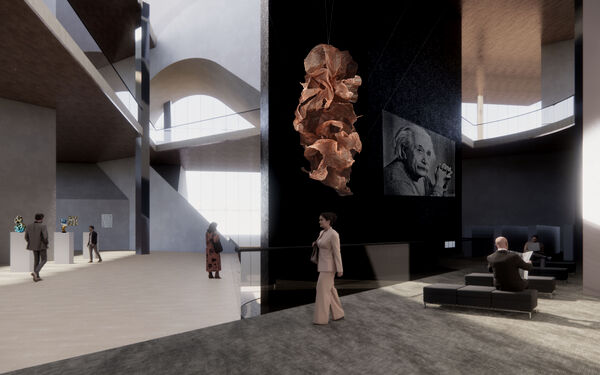
Metaxography
Metaxography is the study of relationships, exploring the idea that architecture is not only about designing physical entities, such as buildings and blocks, but also about shaping the relationships between them, and between people and the object world. This approach investigates whether types and dynamics of relationships can be classified and used to uncover hidden logics or explore unknown territories in architecture. Insights from other fields: drama, literature, painting, or music, can inform new ways of reading architectural and urban design classics. Metaxography aims to move architecture beyond technocratic problem-solving, contributing to both theoretical and experimental developments, including computational architecture, where new algorithms for relationships may emerge. This approach is exemplified in courses such as Advanced Building Design.
Cross-disciplinary Architecture
Our work emphasizes collaboration across design disciplines, bringing together architecture, interior design, fashion design, service design, and environmental design. Integrated projects begin with joint analysis and concept development, followed by discipline-specific designs that fit together cohesively. Many of these projects have been international collaborations with institutions such as the Royal College of Art (service design), Shibaura Institute of Technology (urban planning), Tongji University (environmental design), and Donghua University (fashion and interior design). The USP Capstone course is part of an interdisciplinary urbanism program, combining political and social sciences with art and landscape architecture, fostering holistic, cross-disciplinary design thinking.
Social Sustainability
Instead of concentrating on technical (environmental) sustainability, which is definitely also important, our focus is on social sustainability. This refers to themes such as diversity, tolerance, memory and projection, belief and meaning, enquiry, learning, consumption, livability, cultural explorations and competence, quality of life, and identity. We let others focus on CO2 and energy performance. Our work explores architecture’s role in shaping inclusive, meaningful, and livable environments. Past projects have included speculative studies of generational consumer behavior in Japan, streetification (turning modernist road environments into lively streetscapes), and School as a Service (school environments supporting social learning).
Adaptive reuse of Cambridge’s Downing Site into co-living/work spaces, cutting carbon, fostering equity, and bridging town-gown divides.
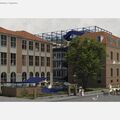
Designing an art museum in Fiskars Village, merging architecture with visual arts for modern and contemporary exhibitions.
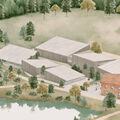
Adaptive reuse studio reimagining Helsinki’s Hanasaari Power Plant as a mixed-use hub through collage and circular design principles.
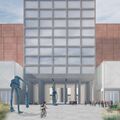
This project explores ways to bring new life to Helsinki’s city centre, creating housing, workplaces, and cultural spaces for a vibrant urban experience. It focuses on innovative, people-centered solutions that balance growth with the city’s heritage.
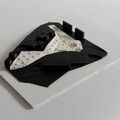
Designing a 10,000 sqm Maritime Centre in Toyosu, Tokyo, exploring human-nature relationships, sea biodiversity, and interactive architecture.

Capstone on qualitative evolutionary design exploring social innovation in Helsinki’s Tervasaari and London’s Ethelburga.
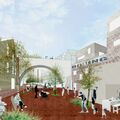
Urban design study reimagining Karhusaari’s 19th-century villa site in Espoo through sustainability, reuse, and community collaboration.
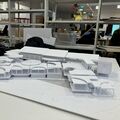
Advanced Building Design Studio 2022 in Toyosu, Tokyo explored metaxography—designing architecture as relationships, not just buildings.
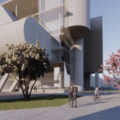
Space & Light Academy at USN 2022 taught architectural lighting design through lectures and workshops, blending history, materials, and tools.
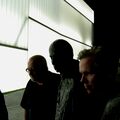
In Spring 2021, Aalto University’s Advanced Building Design Studio, in collaboration with Shibaura Institute of Technology, focused on designing a community library in Tokyo’s Toyosu area, exploring how architecture reflects generational values. The studio examined public buildings as anchors to shape the area’s urban interactions and development.
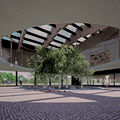
Multidisciplinary Aalto University exhibition uniting architecture, interior, and fashion design to explore heat, space, and poetics.
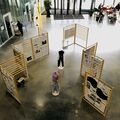
2019 studio at Aalto designed a new Architecture and Design Museum in Helsinki, exploring museum typology, site, and architectural purpose.
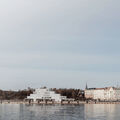
School as a Service (2015–19) explored service architecture in education, designing flexible learning environments with social value.

CSL@Aalto, a collaboration with MIT Media Lab, uses Otaniemi as a Living Lab to test urban innovation and develop the CityScope tool.
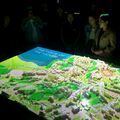
Aalto’s 2018 studio unites architecture, interior, and fashion students to design a Deepmoss shop, exploring heat control and integrated concepts.
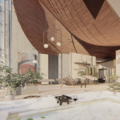
Human Cities (2014-17) explored co-creating urban life in Europe through design, engaging people across cities and disciplines.
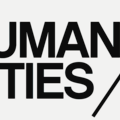
Aalto–Tongji workshop explored Taizhou’s urban future through heritage preservation, AR experiences, wetlands, and sustainable design strategies.
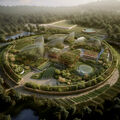

Two-day seminar in Cambridge on adaptive reuse of Downing Site, with student proposals, expert talks, and site visit.

Aalto Stoa, the student-driven platform for Otaniemi campus design, has now been completed and archived for future reference.

Edited by Antti Ahlava, the book guides Finnish architects in sustainable design, green transition, and innovative digital methods.
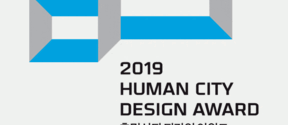
School as a Service, created by Ahlava and team, wins its 7th award - Seoul’s Human City Design Award—for rethinking learning through shared, flexible spaces.
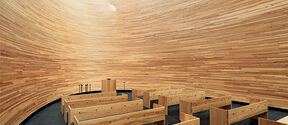
Exit School of Architecture exhibition at the 13th Tallinn Design Festival showcases Finnish projects exploring local identity, participatory design, and Nordic aesthetics.
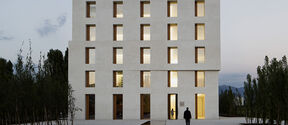
Dietmar Eberle of ETH Zurich and Baumschlager Eberle Architekten lectured at Aalto’s Otaniemi campus on architecture and design.